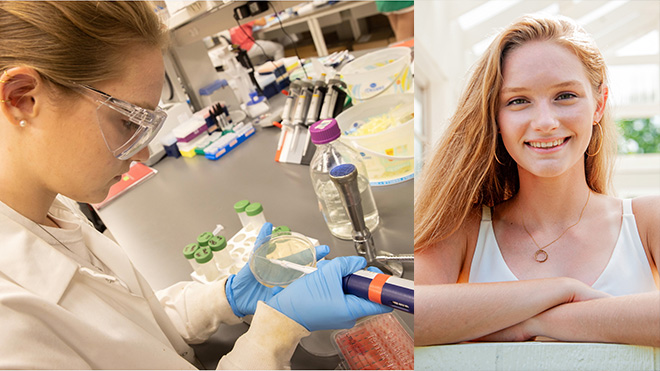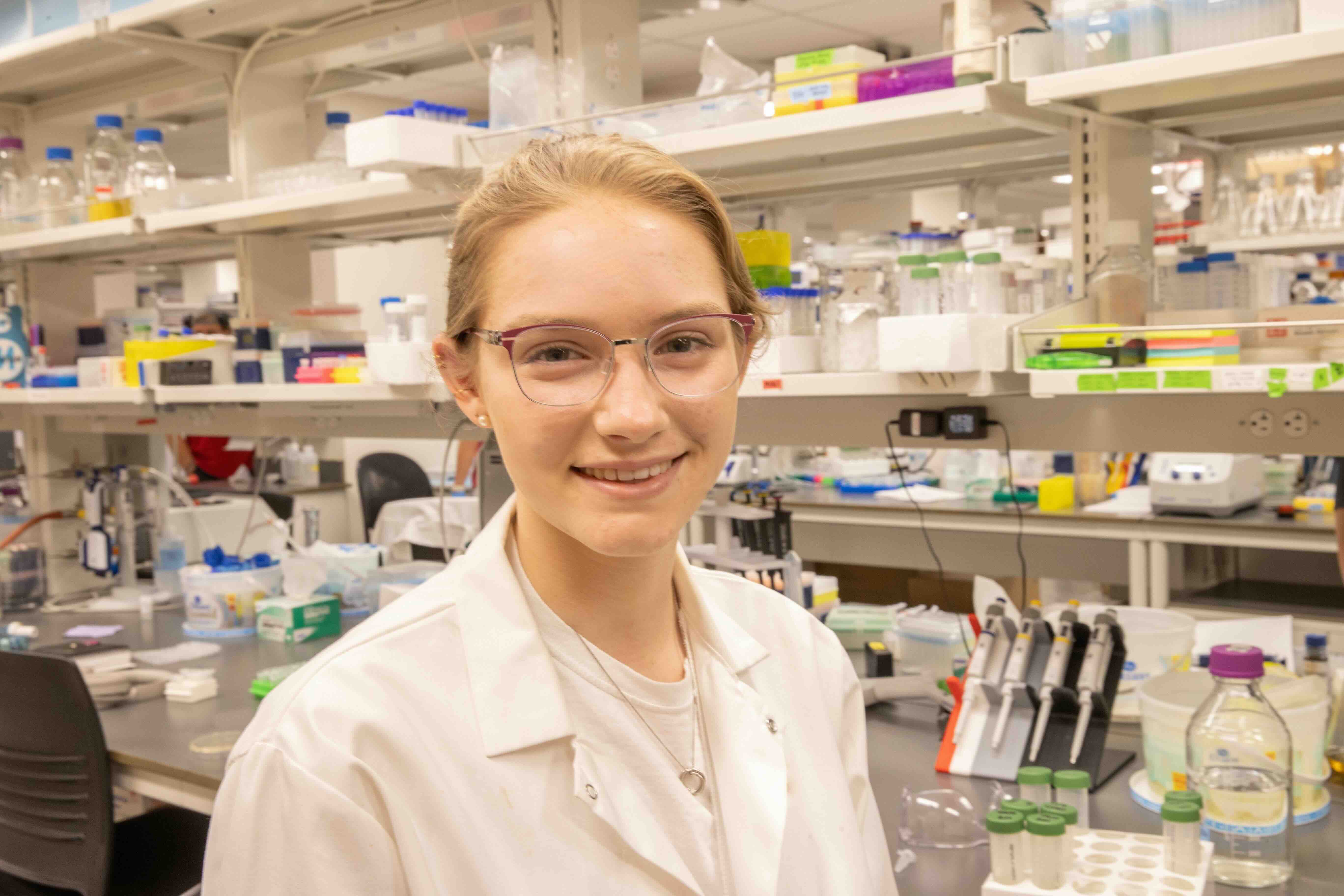Biochemistry senior examines psychedelic compound for potential use in mental health treatments
Grace Kemmerly’s undergraduate research working with psilocybin is helping to develop new drug alternatives and preparing her for post-graduate studies.

Biochemistry senior examines psychedelic compound for potential use in mental health treatments
Grace Kemmerly ‘25, a Biochemistry major with co-majors in both Premedical Studies and Neuroscience, knew she wanted to get involved in undergraduate research after hearing about the groundbreaking research for mental health treatments being conducted at Miami.
After looking into the research labs offered at Miami, Kemmerly found one run by J. Andrew Jones, associate professor of Chemical, Paper, and Biomedical Engineering. His lab works with psilocybin, a naturally occurring psychedelic compound that derives from some species of mushrooms. He and his team, including Kemmerly, are creating psilocybin derivatives with small structural changes predicted to have a slightly different effect on the body.
 “If we can make these new psilocybin derivatives at high enough concentrations to purify them, we can send them for testing with our research collaborators,” Kemmerly said. “Then hopefully one of them would have an improved effect on mental health treatment with reduced side effects.”
“If we can make these new psilocybin derivatives at high enough concentrations to purify them, we can send them for testing with our research collaborators,” Kemmerly said. “Then hopefully one of them would have an improved effect on mental health treatment with reduced side effects.”
Active research suggests that psilocybin has positive effects on mental health and can be used to treat depression, substance abuse disorder, and PTSD. However, being a psychedelic compound, it “causes a multi-hour hallucinogenic episode, which is a side effect limiting clinical use and public acceptance,” said Jones.
The structure of a compound determines its function and how it affects the human body.
“If we could stick different elements onto the structure, then we can change its structure and then hopefully also change its function,” said Kemmerly. “Maybe the medication you take wouldn't be normal psilocybin; it may be a psilocybin with a fluorine and have reduced hallucinogenic side effects.”
There are many treatments for PTSD and substance abuse disorders, but conventional treatments are not always effective for the majority of the population.
“This treatment has been shown to greatly improve the quality of life for those with treatment-resistant mental disorders,” said Kemmerly.
Working under the guidance of her professor, Kemmerly worked on her own Undergraduate Summer Scholar (USS) project, titled “Production of Non-Natural Psilocybin Derivatives in E. coli,” to produce new derivatives and identify new biosynthetic pathways. Her research is intertwined with that of other students in the lab, which she finds to be a positive experience.
Problems she and other students face in the lab are unlike problems faced in the classroom, she said, since most don’t have concrete answers.
“In the lab, if something doesn't work, we don't necessarily know why it's not working, it's a different type of problem-solving,” Kemmerly said. “It's a good way to learn that type of critical thinking. In the same vein, when you run into those problems, you don’t solve them alone.”
Kemmerly plans to develop her problem-solving and communication skills further as she works towards her career goal of becoming a clinical or research veterinarian. Along with her undergraduate degree, she plans to graduate simultaneously with her masters in Cell, Molecular and Structural Biology.